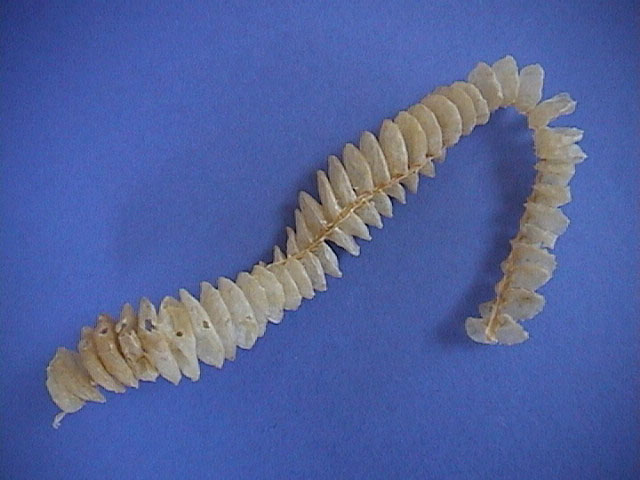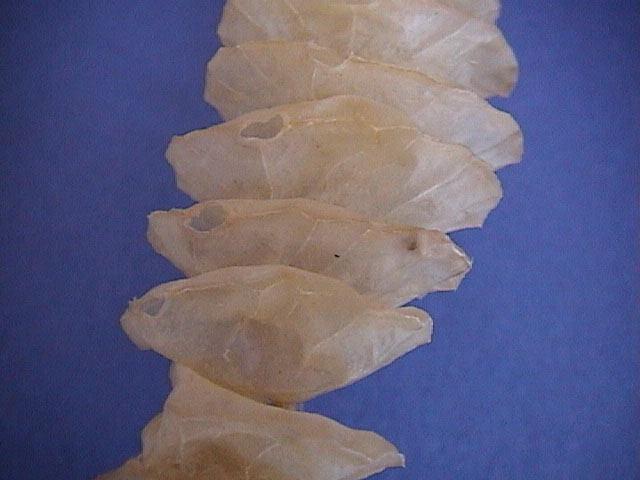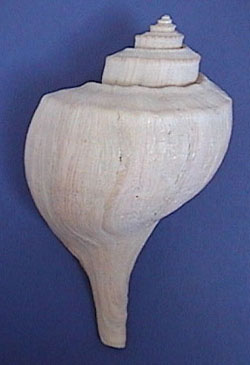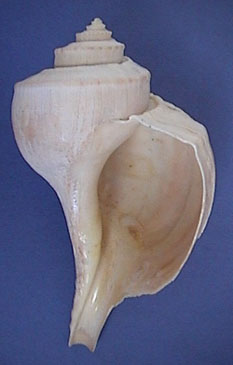|
Channeled Whelk (Busycotypus canaliculatus)
|
|
The Channeled Whelk has distinct grooves or channels between
the whorls
and opens on the right. This whelk has a rounder aperture
than the others and has a fuzzy periostracum
when alive. Whelks and their egg cases are common on southeastern beaches.
Whelks grow up to 12 inches in length and are pear-shaped with the top
being wide with a short spire.
These univalves prey
on bivalves by clasping them with their strong foot
and prying apart the shells using the lip
of their shell. They are also known to eat carrion
and are great shells for Hermit Crabs when they are empty. They are
often caught in crab traps feeding on bait. Whelks can be used as signal
horns and are used for chowders. Their egg cases are lightweight and
are attached in a string like a necklace with each disc containing 20-30
eggs or more. The egg cases of this species have sharp edges and are
not squared (pictured below). Many never hatch because their newly hatched
siblings eat them. Tiny whelks, miniatures of their parents, first hatch
from eggs inside the capsule and then hatch again out of the capsule
by eating their way out. Small holes are visible in each capsule (pictured
below) where they emerged. |
  |

